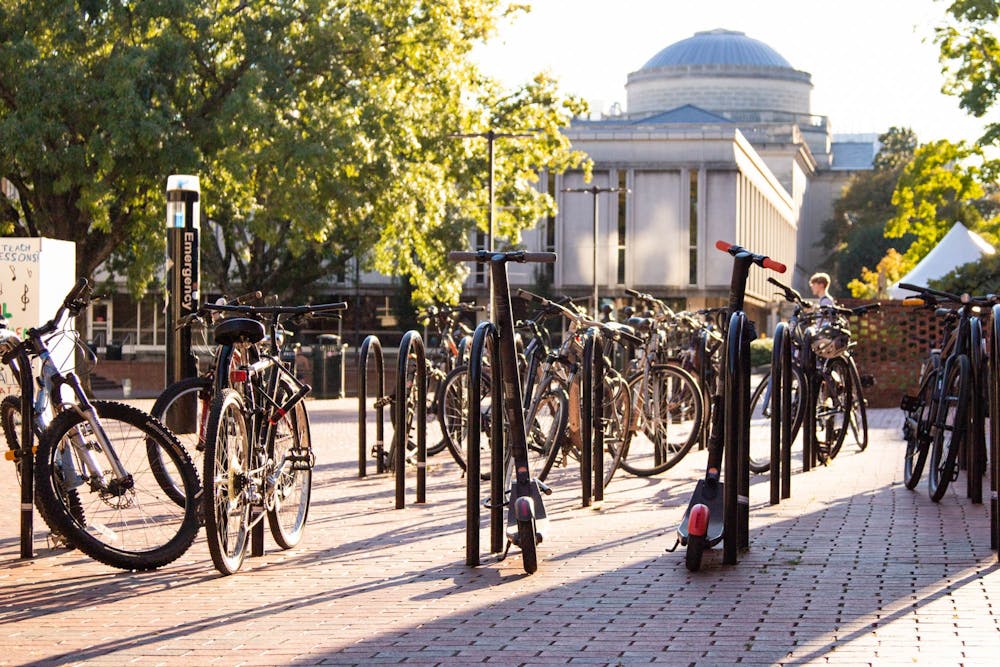The Chapel Hill Town Council discussed the implementation of the Town of Chapel Hill Climate Action and Response Plan at a meeting Wednesday. Its mission is for the town to transition to 80 percent clean, renewable energy sources by 2030 and 100 percent by 2050.
The plan has four main impact categories: green energy, transportation, sustainable development and infrastructure upgrades. The revised plan was adopted in April, and a budget was approved in June.
John Richardson, community resilience officer for the Town, presented a review of the plan at the meeting.
Richardson went over several studies the Town intends to conduct which will measure current emissions and plans for future resilience. This includes energy burden evaluations, public housing assessments and community options for investing in utility-scale renewable energy, which Richardson said will likely be solar.
Another important aspect of the Climate Action and Response Plan is making local transportation more sustainable.
“Just as a reminder, buildings and transportation make up 95 percent of our community emissions, so actions in these areas are a big focus for the next few years,” Richardson said.
Richardson said the Town has purchased three electric buses that will be on the road by January, which will be followed by seven more electric buses later next year.
The Town also hopes to make owning an electric vehicle easier. Richardson said they will use a location mapping tool to determine the best locations in the area for charging stations, with an intended 46 stations being installed within the next year.
Town Council member Hongbin Gu addressed the need for other efficient modes of transportation in addition to electric vehicles.




